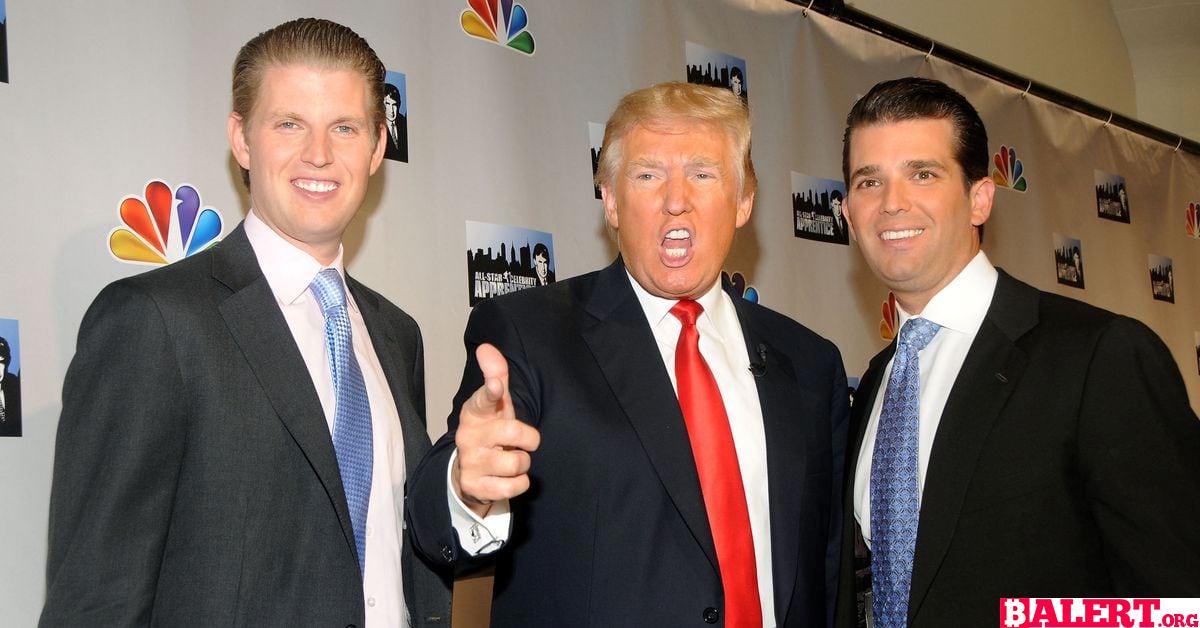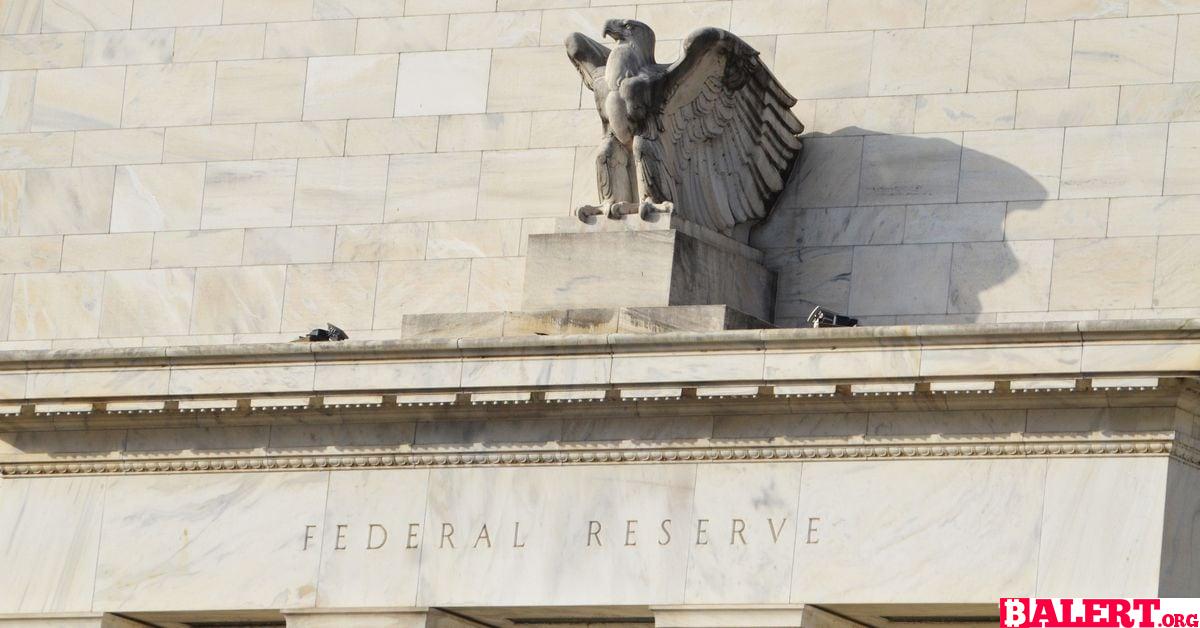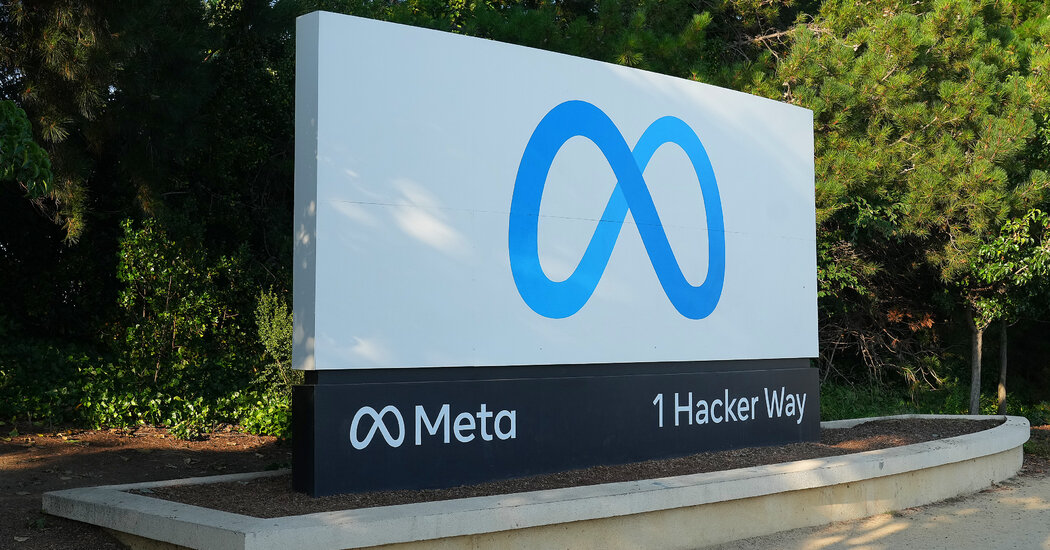Business
World Liberty Financial: A Controversial Crypto Project by the Trump Family
Explore the intriguing world of World Liberty Financial, a controversial crypto project linked to the Trump family. Discover the project’s goals, challenges, and the debate surrounding its impact on the cryptocurrency landscape.

World Liberty Financial: A New Crypto Venture by the Trump Family
World Liberty Financial, a recently launched crypto lending platform, is being promoted by former U.S. President Donald Trump and his sons, aiming to “put the power of finance back in the hands of the people.” The platform claims to offer a solution to the perceived inequities of the traditional finance system.
A draft white paper obtained by CoinDesk reveals some intriguing details about the project. It indicates that a staggering 70% of WLFI, the governance token for World Liberty Financial, will be controlled by a select group of insiders, including the founders, team members, and service providers. In contrast, only 30% of the token supply is earmarked for public sale, part of which will also benefit project insiders. Some of the raised funds will be allocated to a treasury meant to support the operational needs of World Liberty Financial.
This high allocation to insiders raises eyebrows, especially as the crypto space typically favors more equitable distributions. For comparison, Ethereum’s Genesis block allocated just 16.6% of ether (ETH) to the Ethereum Foundation and early contributors, while the three firms behind Cardano retained a combined 20% at launch. The creator of Bitcoin, Satoshi Nakamoto, is estimated to hold slightly over 5% of Bitcoin’s total supply. One industry insider, when questioned about the 70% allocation to insiders, humorously remarked, “LMAO. nice joke ser.”
As of now, World Liberty Financial has yet to finalize its operational plans, according to sources close to the project. This comes on the heels of a CoinDesk report that revealed the involvement of the Trump family and individuals associated with a recently hacked crypto application in the project’s development. Reports also confirm that World Liberty Financial will be built on Aave, a well-known Ethereum-based lending platform.
The allocation strategy prompts speculation about whether this venture is more about leveraging the Trump family’s notoriety than genuinely advancing decentralized finance (DeFi). Typically, proceeds from pre-sales are reinvested into projects to foster growth. If insiders intend to retain most of the funds for themselves, questions arise about how they will fulfill their ambitious promises.
Among these promises is the goal of establishing the U.S. as the “crypto capital of the planet.” In a Telegram post, the World Liberty Financial team reassured skeptics that their “plan will speak for itself,” boasting that the project is backed by “the brightest minds in crypto” and urging doubters to reconsider their stance.
They further emphasized their commitment: “Our mission is crystal clear: Make crypto and America great by driving the mass adoption of stablecoins and decentralized finance. We believe that DeFi is the future, and we’re committed to making it accessible and secure for everyone.”
In the current crypto landscape, public token pre-sales are becoming increasingly rare, largely due to the decline of initial coin offerings (ICOs), which once served as a primary fundraising method for crypto startups. The fall from grace of ICOs can be attributed to heightened regulatory scrutiny, rampant fraud, and the emergence of alternative fundraising models that provide greater oversight and investor protections.
World Liberty Financial’s approach deviates from traditional ICOs in that the WLFI token will be non-transferable, preventing trading between users. This strategy appears designed to shield World Liberty Financial from potential securities law violations. According to the white paper, “All $WLFI will be non-transferable and locked indefinitely in a wallet or smart contract until such time, if ever, $WLFI are unlocked through protocol governance procedures in a manner that does not contravene applicable law.”
Recent revelations have also highlighted World Liberty Financial’s connections to Dough Finance, a lending app that was recently hacked, with its founders including Zak Folkman, a former pick-up artist and entrepreneur who is officially registered as the owner of World Liberty Financial LLC.
While Donald Trump seems to envision World Liberty Financial as a bridge to the blockchain community, some of his supporters within the industry caution that the initiative could backfire. Nic Carter, a notable figure in the crypto space and a Trump supporter, raised concerns on X (formerly Twitter), asking, “Is there something that we, as crypto twitter, can collectively do to stop the launch of world liberty coin?”
Carter elaborated, stating, “I think it genuinely damages Trump’s electoral prospects, especially if it gets hacked (it’ll be the juiciest DeFi target ever and it’s forked from a protocol that itself was hacked). It’s also an obvious target for the SEC. At best, it’s an unnecessary distraction; at worst, it’s a huge embarrassment and source of (additional) legal trouble. So are we signing a petition or what?”
As World Liberty Financial prepares for its launch, it has already caught the eye of fraudsters and hackers. Recently, the X accounts of Eric Trump’s wife, Lara Trump, and Trump’s youngest daughter, Tiffany Trump, were compromised and used to promote a crypto scam masquerading as World Liberty Financial.
Donald Trump is officially designated as the project’s “Chief Crypto Advocate,” while his two oldest sons, Don Jr. and Eric, serve as “Web 3 Ambassadors.” Barron Trump, the former president’s 18-year-old son, holds the title of “DeFi Visionary” for World Liberty Financial.
Despite the Trump family’s significant involvement in promoting and launching the project, the white paper emphasizes a lack of political affiliation. It states, “World Liberty Financial is not owned, managed, operated, or sold by Donald J. Trump, the Trump Organization, or any of their respective family members, affiliates, or principals. However, they may own $WLFI and receive compensation from World Liberty Financial and its developers. World Liberty Financial and $WLFI are not political and have no affiliation with any political campaign.”
Danny Nelson contributed reporting to this story.
Business
Bhutan’s Strategic Investment in Bitcoin: A New Era for the Himalayan Kingdom
Explore how Bhutan is embracing Bitcoin as a strategic investment, marking a transformative shift for the Himalayan kingdom. Discover the implications of this move on its economy, sustainability, and future in the digital age.

Buddhist Kingdom’s Bold Move into Bitcoin
A stunning landlocked nation nestled between India and China, Bhutan has made headlines by accumulating significant bitcoin (BTC) holdings totaling over $780 million in recent years. This amount represents nearly one-third of the country’s gross domestic product (GDP), positioning Bhutan as the holder of the fourth-largest state-owned stash of BTC, as revealed by the on-chain analytics tool Arkham.
Known for its unique approach to governance, Bhutan emphasizes the happiness of its fewer than 900,000 citizens as a more meaningful metric of well-being than traditional economic indicators. This Himalayan kingdom has become the second nation, following El Salvador, to officially embrace BTC as part of its national strategy, incorporating it into the state-owned Druk Holdings fund.
According to Arkham, Bhutan has established bitcoin mining facilities across various locations, with the most significant operation situated on the site of the now-defunct Education City project. Unlike many governments that acquire BTC through asset seizures related to law enforcement, Bhutan’s holdings have originated from extensive bitcoin mining activities, which have seen a remarkable increase since early 2023.
These mining operations are likely connected to Bitdeer (BTDR), a prominent player in the cryptocurrency mining sector. In 2023, the Singapore-based firm announced its collaboration with the Bhutanese government to develop cryptocurrency mining operations in Southeast Asia, successfully raising over $500 million for this ambitious venture. Following this announcement, Bitdeer disclosed that it had completed the first phase of a 100 megawatt (MW) mining facility.
Looking ahead, Bitdeer announced plans to expand Bhutan’s mining capacity to a staggering 600 MW by 2025, reflecting the growing significance of this initiative.
Despite its small geographic size, even smaller than Switzerland, Bhutan faces challenges such as limited economic diversification and an underdeveloped private sector. The nation primarily relies on sectors like hydropower, tourism, and agriculture to generate revenue. In 2022, Bhutan’s GDP was recorded at just under $3 billion, approximately half that of the Maldives.
To bolster its economy, Druk Holdings is exploring opportunities across various sectors. The organization’s website highlights “digital assets” as a key focus area in its technology-driven investment strategy, which also includes projects in hydropower and emerging digital realms like the metaverse.
Recent activities in the Druk wallets, as monitored by Arkham, indicate a flurry of deposit and withdrawal transactions in recent weeks. The fund has received multiple deposits of up to 2 BTC from Foundry, another mining entity, as well as from other unidentified bitcoin addresses during the past week. Additionally, Druk Holdings has periodically transferred bitcoin to various addresses, including crypto exchanges. One notable transaction from early July involved a transfer of over $25 million worth of BTC sent to the crypto exchange Kraken, suggesting that it was likely sold to capitalize on market conditions.
Business
Bitcoin and Crypto Markets React to Anticipated Federal Rate Cuts
Explore how Bitcoin and cryptocurrency markets are responding to the anticipated Federal rate cuts. Discover the implications for investors and the broader financial landscape in this insightful analysis.

Bitcoin and Crypto Markets Await Federal Rate Cuts
Bitcoin (BTC) and the broader cryptocurrency markets have seen minimal fluctuations over the past 24 hours as traders remain cautious ahead of the upcoming Federal Open Market Committee (FOMC) meeting on Wednesday. This meeting is particularly significant, as officials are anticipated to announce the first interest rate cuts in four years. Currently, Bitcoin is trading just below $58,500, specifically at $58,480, reflecting a relatively stable performance. The CoinDesk 20 (CD20), a benchmark for the largest digital assets, has experienced a slight increase, trading above the 1,800 mark.
In terms of daily activity, inflows into Bitcoin exchange-traded funds (ETFs) have amounted to $12.9 million, with a substantial portion directed towards BlackRock’s IBIT. Analysts widely expect the Fed to unveil a rate cut on September 18, signaling the beginning of a potential easing cycle that has historically provided support for risk assets, including Bitcoin.
As of Tuesday morning in Asia, the 30-Day Fed Funds futures prices indicate that traders perceive a 67% likelihood of a significant 50 basis points rate cut, bringing the target range to 4.7%-5%. This is an increase from Monday’s implied probability of 50% and a notable rise from the 25% probability reported a month ago. On Polymarket, traders are assigning a 57% chance of a decrease exceeding 50 basis points, alongside a 41% chance of a 25 basis points cut.
Meanwhile, the overall market remains relatively stable. Noteworthy movements have been observed, such as XRP rising by 3.5%, SUI increasing by 2.5%, and Fantom’s FTM surging by 10.5%, buoyed by positive market sentiment surrounding its forthcoming rebranding to Sonic.
Trump’s World Liberty Financial to Introduce WLFI Token
In other news, the team behind World Liberty Financial, a project receiving endorsement from former President Donald Trump and his family, has announced the launch of a governance token. However, it is crucial to note that this token will only be available to accredited U.S. investors. During a livestream that lasted over two hours, the team highlighted that the token is intended for governance participation rather than for economic profit and did not disclose a specific launch date during the X Spaces stream.
Throughout the livestream, Trump himself did not specifically mention the token or provide an endorsement. Instead, he reiterated his general views on cryptocurrency policy, much of which echoed his previous public statements, including those made at the recent Bitcoin Conference held in Nashville.
Figure Markets Launches Exchange with Real Estate-Backed Yields
In a groundbreaking development within the crypto space, Figure Markets has announced the launch of its exchange, coinciding with the Token2049 event in Singapore. Founded by Mike Cagney, a co-founder of SoFi, Figure Markets introduces an innovative method for generating yields for users who store their cryptocurrency on the platform.
According to a recent release, Figure Markets claims it can offer returns of up to 8% for non-USD and stablecoin balances. This is achieved by leveraging a fund backed by real-world assets, particularly home equity loans. The operational model involves traders depositing their funds into Figure Markets, which are then pooled and lent to Figure Technologies for the issuance of secured home equity loans. The interest paid by borrowers on these loans creates a spread that not only covers operational costs but also provides returns to investors. These investors benefit from dual recourse protections, daily liquidity, and interest payments that accrue based on the duration of their investments.
While Real World Assets (RWAs) are progressively becoming a noteworthy aspect of the cryptocurrency industry, there are still very few applications that seek to derive yield from these assets to support their operations. Prior to the launch of Figure in 2023, Cagney had withdrawn the company’s bid for a U.S. federal bank charter amid regulatory scrutiny, opting instead to pursue partnerships with established banks.
Business
Meta Bans Russian Media Outlets Amid Disinformation Concerns
In response to rising disinformation concerns, Meta has imposed bans on several Russian media outlets. This decision highlights the ongoing battle against misinformation and the platform’s commitment to ensuring accurate information for its users.

Meta Takes Strong Action Against Russian Media Outlets
On Monday, Meta announced a significant initiative to prohibit Russian media outlets, including the state-funded television network RT, from utilizing its platforms. This decision comes in light of ongoing scrutiny in the United States regarding these outlets’ involvement in covert influence campaigns designed to manipulate online discourse across various social media platforms.
Meta, the parent company of popular applications such as Facebook, Instagram, and WhatsApp, stated that the ban would be implemented in the coming days. This decisive action marks an escalation in the ongoing efforts to combat Russian state media actors, which U.S. intelligence officials have identified as key players in disinformation operations that span the globe, infiltrating the world’s largest social networking sites.
In a formal statement, Meta expressed, “After thorough consideration, we have expanded our current enforcement measures against Russian state media outlets. Rossiya Segodnya, RT, and other related entities are now prohibited from our applications worldwide due to their involvement in foreign interference activities.”
Recently, U.S. authorities have tightened their grip on RT, particularly for its attempts to meddle in the upcoming presidential election scheduled for November. On Friday, the United States, in conjunction with Canada and Britain, accused RT of functioning as a conduit for Russian intelligence agencies. They announced new sanctions aimed at curtailing international funding sources that support disinformation campaigns globally.
This crackdown follows the federal indictment of two RT employees, who allegedly funneled at least $9.7 million to finance American podcasters on Tenet Media, a video-streaming service based in Tennessee. The goal was to amplify the Kremlin’s propaganda and undermine the integrity of the American democratic process.
Secretary of State Antony J. Blinken emphasized the broader implications of these tactics, stating, “We’re revealing how Russia employs similar strategies globally.” He further noted, “The Russian weaponization of disinformation to destabilize and polarize free and open societies is a challenge that impacts every corner of the world.”
-

 Business7 months ago
Business7 months agoThe Significance of Jackson Hole: A Central Banking Tradition
-

 Tech6 months ago
Tech6 months agoNew Leaks and Features About the Samsung Galaxy S25 Ultra
-

 Article9 months ago
Article9 months agoCreative Design Applications Developed with Artificial Intelligence
-

 Business6 months ago
Business6 months agoBhutan’s Strategic Investment in Bitcoin: A New Era for the Himalayan Kingdom
-

 Business8 months ago
Business8 months agoObituary: Dan Collins
-

 World6 months ago
World6 months agoThierry Breton Resigns: Impact on European Union Leadership
-

 Gaming6 months ago
Gaming6 months agoNew Details and Trailer Released for Dead Rising Deluxe Remaster
-

 Gaming6 months ago
Gaming6 months agoNew Details for Alan Wake 2 and PlayStation 5 Pro Announcement









